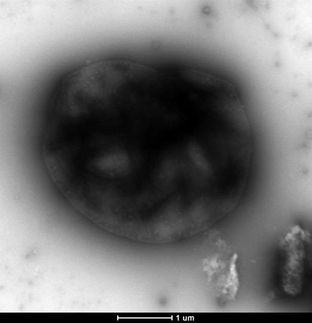Breakthrough for bacterial hydrogen production
Advertisement
Scientists in China have developed for the first time a microbial electrolysis cell (MEC) that can produce hydrogen at temperatures below 25ºC.
Normally, hydrogen production by bacterial metabolism is decreased at lower temperatures due to the decreased speed of individual enzyme catalysed reactions. But Defeng Xing and his team optimised hydrogen production from organic matter using an MEC between 4ºC and 9ºC, which not only eliminates the cost associated with heating, but would enable hydrogen production to be carried out at high latitudes and mountainous regions where the air temperature is below 10ºC.
Made by modifying microbial fuel cells (MFCs) with an anaerobic cathode and applying a small voltage, MECs work in a the opposite way to MFCs. Whereas MFCs produce an electric current by the bacterial decomposition of hydrocarbons in water, MECs generate hydrogen directly upon applying an electric current to bacteria. Bacteria consume acetic acid, which is produced from fermenting plant matter and release protons (H+), electrons and CO2. Addition of an electric current enables the protons and electrons to join together to make hydrogen gas, H2 and the higher the current, the more hydrogen is produced.
Original publication
L Lu, N Ren, X Zhao, H Wang, D Wu and D Xing, Energy Environ. Sci., 2011.
Most read news
Original publication
L Lu, N Ren, X Zhao, H Wang, D Wu and D Xing, Energy Environ. Sci., 2011.
Organizations
Other news from the department science

Get the life science industry in your inbox
By submitting this form you agree that LUMITOS AG will send you the newsletter(s) selected above by email. Your data will not be passed on to third parties. Your data will be stored and processed in accordance with our data protection regulations. LUMITOS may contact you by email for the purpose of advertising or market and opinion surveys. You can revoke your consent at any time without giving reasons to LUMITOS AG, Ernst-Augustin-Str. 2, 12489 Berlin, Germany or by e-mail at revoke@lumitos.com with effect for the future. In addition, each email contains a link to unsubscribe from the corresponding newsletter.
























































